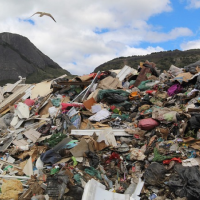Eastern EU states oppose energy, air, waste proposals
Ez is érdekelhet

Six Eastern European member states will together oppose binding EU-level renewables and energy efficiency targets for 2030, and push for proposed air quality and waste goals to be watered down.
Representatives of Poland, Czech Republic, Hungary, Slovakia, Bulgaria and Romania agreed a joint position on the three major current EU environment dossiers at a meeting in Bratislava on Tuesday. The so-called V4+ group are strengthening their negotiating power in Europe by co-ordinating their positions on the 2030 climate and energy targets, new air pollution caps, and the ‘circular economy’ package of waste and recycling goals.
The European Commission’s clean air and circular economy packages set out ambitious binding targets for 2030, including cutting SO2 emissions by 81% on 2005 levels and recycling 70% of all municipal waste. The air pollution reduction goals proposed by the European Commission are “too ambitious and [their] implementation would be economically challenging in our regional conditions and national circumstances”, the countries said in a joint statement, adding that they would act “jointly” to water down the goals to “more acceptable levels”. Purely indicative air pollution targets or additional flexibility mechanisms may be needed, they said.
They also believe the proposed recycling targets for 2030 are too ambitious and called for an extended time frame for achieving them or for new targets to be set “according to individual countries’ specifications”. As hinted by the Polish government earlier this week, the countries have agreed to support only a binding CO2 reduction target for 2030, which should be “set realistically and in a technology neutral way”.
The meeting comes just three weeks before EU leaders are due to finalise the 2030 climate and energy goals. The V4+ countries emphasised that further talks are needed to ensure the targets “reflect regional needs and circumstances in a balanced way”. They want the current distribution of emissions reductions to continue after 2020. They also called for greater flexibility for meeting climate targets, including banking unused emissions quotas from the non-ETS sectors for the period after 2020.
- Poland’s new prime minister Ewa Kopacz emphasised that she would not agree to EU climate and energy rules “that will mean extra costs for our economy and higher prices of energy for consumers”, in her inaugural address to parliament on Wednesday.
Source: endseurope.com







